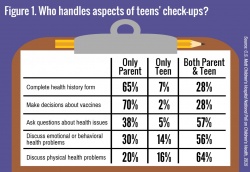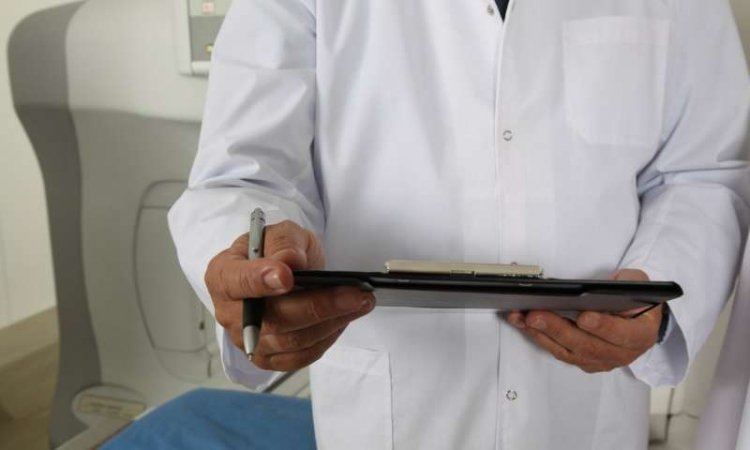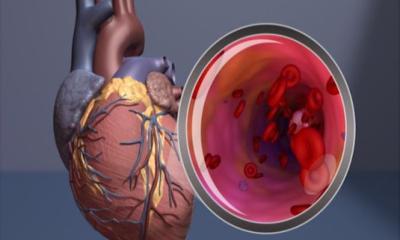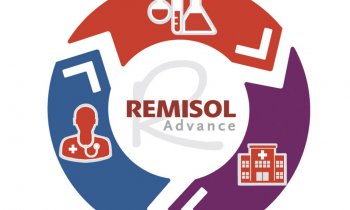Helicopter parenting at doctor's office may impact teen health
Majority of parents take control at routine visits, but may impede teens' health care independence researchers from the University of Michigan Health System say.

Parents of teens may struggle letting go of the reins when it comes to their children's health checkups, a new national poll suggests.
Just 34 percent of parents say their teen discussed health concerns privately with a doctor without them in the room, and less than 10 percent say their teens can complete their health history form independently.
Today's report from the C.S. Mott Children's Hospital National Poll on Children's Health at the University of Michigan includes a nationally-representative group of parents of teens ages 13-18.
"The majority of parents are managing teens' health care visits, and their teens may be missing out on valuable opportunities to learn how to take ownership of their own health," says Sarah J. Clark, M.P.H., associate director of the C.S. Mott Children's Hospital National Poll on Children's Health.
"Having teens take the lead in responsibilities like filling out their own paperwork, describing their health problems, and asking questions during adolescence helps them gain experience and confidence in managing their health. Speaking with the doctor privately is important, not only to give teens a chance to disclose confidential information, but also to provide the opportunity for them to be an active participant in their own health care, without a parent taking over."
Nearly 40 percent of parents say that they alone -- not their teen -- would ask questions about health issues. Only 15 percent of parents say their teen would independently share physical or emotional problems with the doctor.
"Parents' top reason for handling different aspects of the health care visit is that their teen would not be comfortable talking about these subjects -- which may stem from the fact that they aren't getting much practice," says Clark
"Parents are naturally concerned about their child's health and that transition to letting their teens become independent in the health setting can be difficult," Clark adds. "But with parents' guidance, these early opportunities will help teens prepare to navigate the health care system and take responsibility for their own health as they get older."
Ways to help your child become independent at health visits:
Before an appointment, encourage your teen to write down any health problems or questions they have.Upon arriving at a doctor's visit, ask your teen to check in at the registration desk and complete forms.During the visit, wait to speak, giving your teen space to describe any problems or ask any questions.
Source: University of Michigan Health System
15.12.2015











